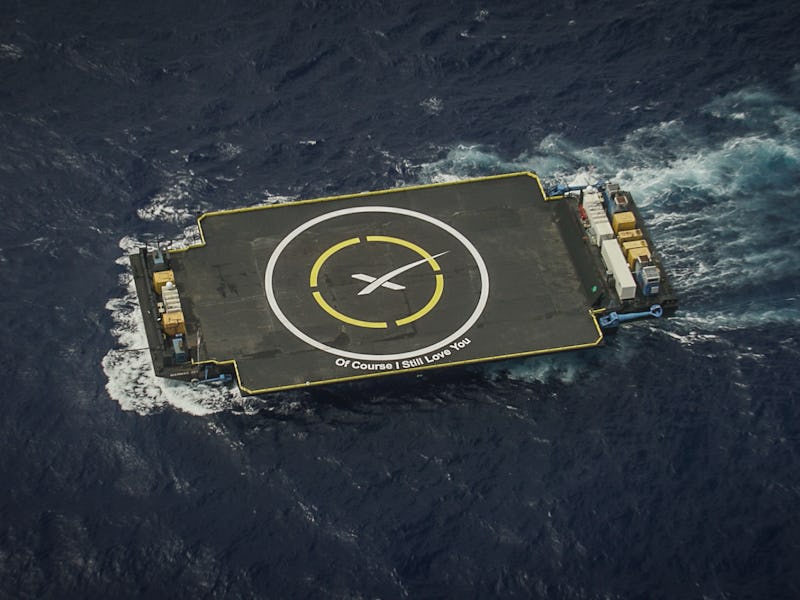5 Reasons SpaceX Needs to Perfect the Sea Landing
It comes down to more versatility.

The demons of the sea keep catching up with Elon Musk, CEO of SpaceX. Why does he insist on confronting them?
SpaceX had the whole world cheering when it successfully returned the first stage of a rocket it had launched into orbit to a vertical landing at Cape Canaveral, Florida on December 21.
The first-ever achievement was a long time coming — the leading private space company had seen several rocket crashes over the past couple years, including two when they tried to land on barges at sea, so-called “droneships.”
So it was only a small surprise that following the successful landing of a rocket on the ground that Musk quickly returned to sea, though this plan went awry once again this weekend when one of the four leg lockouts didn’t grasp the rocket, causing it to tip and explode.
With sea-faring success still eluding Musk, one begins to wonder why bother with ocean landings at all. There’s plenty of ground on Earth, and if he’s launching the rockets from the shore, what’s so wrong with bringing them back there?
It turns out Musk’s motivations for this particular Falcon-9 sea landing may not be all that scientific after all — they were even a little mundane.
5. You don’t need regulatory approval
But putting bureaucratic obstacles aside, Musk did reaffirm that there are some essential goals of a ship landing.
4. Simply put, ship landings are needed for high velocity missions
3. It saves fuel
Landing at sea means the Falcon 9 rocket does not have to come to a complete lateral (side-to-side) stop before its final descent. SpaceX can align the heading and velocity of a barge with the course of the rocket to conserve precious fuel. While it may not seem like a lot, whether the rocket lands on sea or shore can be the difference between powering a rocket to 6000 km/hr or 9000 km/hr, as Musk notes above.
2. You can carry bigger payloads
Since the primary goal of the SpaceX missions is to ferry satellites into orbit — as it did successfully on Sunday, despite the subsequent crash — the maximum velocity of the rockets affect the size of the satellites (payload) they can haul into space.
1. It could mean more humans go to space sooner and faster
So there may be greater risk involved, but there’s a reward in it for them, too. Even if Musk lost a valuable Falcon 9 rocket this weekend, he’s gambling that the experience was well worth it in terms of enhancing future capabilities. It’s pretty clear he wants SpaceX to be the future of all space travel, not just the light and slow stuff.
As for the world’s response to the crash, most people seem confident Musk will get it right soon enough. Even if they’re being a little tongue-in-cheek.
Thanks, Jeff.